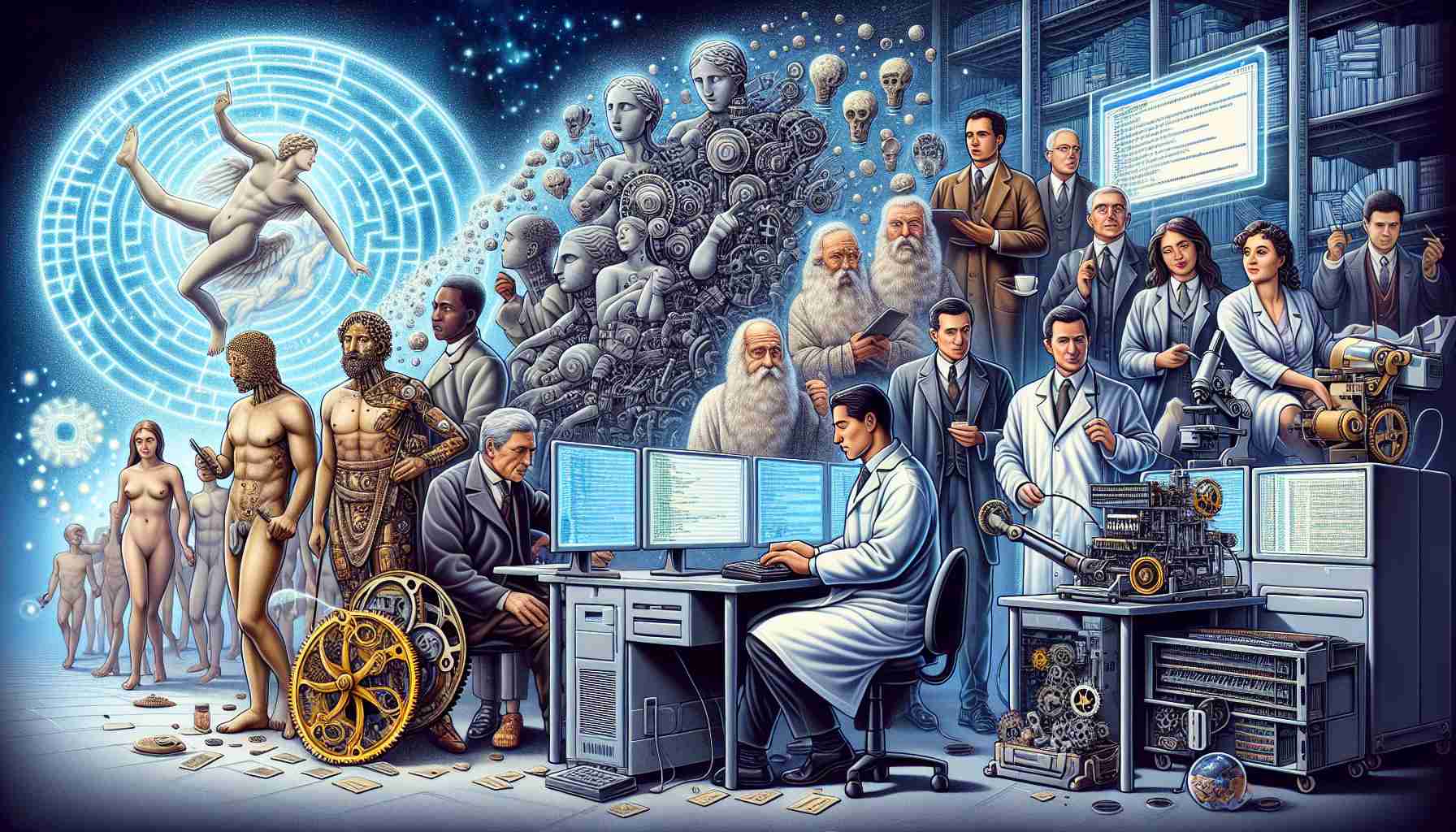The journey of artificial intelligence (AI) began as a vision shared by humanity, becoming a reality nearly seven decades ago. The foundation of AI research was laid during a seminar at Dartmouth College in the summer of 1956. The pioneering program known as the Logic Theorist served as the ancestor of AI, designed to mimic human problem-solving techniques.
A decade later, the introduction of Eliza marked the arrival of the first virtual assistant, resembling a chatbot more than a sophisticated AI. However, the field experienced a stagnation over the next ten years, likely due to the limitations of computing power at that time.
Fast forward to the 21st century, and AI capabilities have surged dramatically, significantly impacting the job market. Intense debates have emerged about which professions may fall victim to AI advancements. Currently, AI excels in areas such as gaming, image recognition, and language processing. Experts believe that roles heavily involving data processing, like clerical jobs, analysts, and designers, are at the highest risk of being displaced.
The introduction of ChatGPT at the end of 2022 sparked a revolution in communication. Not only did this chatbot attract one million users within its first week, but it also demonstrated capabilities beyond mere Q&A, including essay writing, programming, and various other useful tasks. The landscape of AI continues to evolve, heralding new possibilities for its application in everyday life.
Mastering Life with AI: Tips, Hacks, and Insights
As artificial intelligence (AI) continues to evolve and integrate into our daily lives, understanding how to leverage this technology can greatly enhance productivity and efficiency. Here are some practical tips, life hacks, and compelling facts about AI that can benefit everyone.
1. Utilize Virtual Assistants for Time Management
Many people overlook the potential of virtual assistants like Siri, Google Assistant, and ChatGPT. These tools can help you manage your calendar, set reminders, and even draft emails. By automating tasks such as scheduling appointments or sending follow-up messages, you free up valuable time to focus on more critical responsibilities.
2. Enhance Learning with AI Tools
AI-driven platforms like Duolingo for language learning and Coursera for professional development are revolutionizing education. These tools adapt to your learning pace and style, making it easier and more enjoyable to acquire new skills. Invest time in exploring such resources to maximize your learning experience.
3. Optimize Your Work Routine with AI
AI can analyze your work patterns and suggest the most productive times for tasks. Tools like RescueTime can help understand your time usage, allowing you to identify distractions and optimize your workflow. By implementing such insights, you can significantly increase your efficiency and effectiveness at work.
4. Embrace Personalized Content Recommendations
Streaming services, social media, and shopping platforms use AI to recommend content based on your preferences. Take advantage of these algorithms to discover new movies, music, and products tailored to your tastes, enriching your leisure time.
5. Stay Informed About AI Developments
The landscape of AI is ever-changing. Staying updated on the latest trends, tools, and ethical discussions surrounding AI can help you navigate its implications in various sectors. Websites like MIT Technology Review provide valuable insights and articles on cutting-edge advancements in technology.
Interesting Fact: AI and Job Market
While there are concerns about job displacement due to AI advancements, there’s also the potential for new job creation in the tech sector. Roles focused on managing and developing AI applications are expected to see growth. Upskilling in areas like data analysis, machine learning, and software development can position you favorably in this evolving job market.
6. Explore DIY Projects with AI
For tech enthusiasts, there are numerous DIY projects involving AI. Platforms like Arduino or Raspberry Pi allow you to create personalized AI applications, whether that’s a smart garden monitor or an intelligent weather station. Engaging in these projects can deepen your understanding of AI technology and its practical applications.
7. Use AI for Improved Health
AI applications are making strides in personal health management. From fitness trackers that monitor your activity levels to apps that provide nutritional advice based on AI-generated insights, leveraging this technology can lead to healthier lifestyle choices. Consider integrating such tools into your daily routine.
By embracing AI technologies, you can streamline various aspects of your life, enhance productivity, and stay ahead in this rapidly evolving world. For more information and resources, visit IBM’s website to explore AI applications and offerings.








